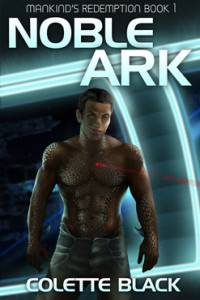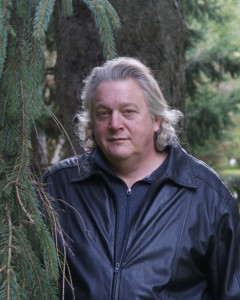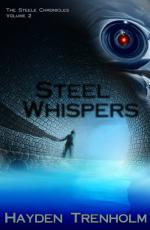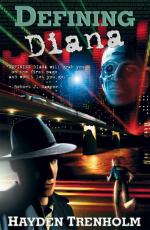A guest post by K.J. Russell.
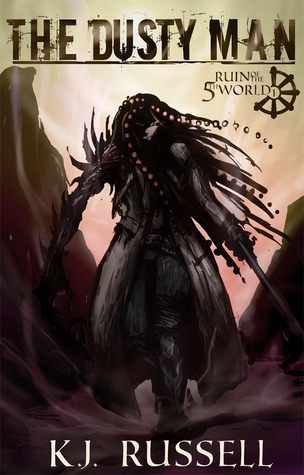 The best assets a writer will ever have are their colleagues. Fellow writers, editors, proofreaders and organizers are going to help your writing reach readers in a way that social media presence, author platforms and clever selling tactics can’t match (plus, colleagues can help you master those). The first piece of advice I always give writers is to get extroverted, attend workshops and critique circles, network and make friends. That can be a hard sell for a lot of writers and it took me a few years to work my way into it.
The best assets a writer will ever have are their colleagues. Fellow writers, editors, proofreaders and organizers are going to help your writing reach readers in a way that social media presence, author platforms and clever selling tactics can’t match (plus, colleagues can help you master those). The first piece of advice I always give writers is to get extroverted, attend workshops and critique circles, network and make friends. That can be a hard sell for a lot of writers and it took me a few years to work my way into it.
Whether you’re still working up the courage to send your first email to a fellow writer, or maybe you’re already a networking guru, it’s easy (and tempting) to think of all things that other writers can do for you. From simply reviewing your work to helping you get reviews, teaching you the ropes of Goodreads, plugging your work on their blog or hooking you up with publication opportunities and event appearances, the ways others can help you are pretty much innumerable. It’s tempting to think about that. But that’s not where you start (even though I just started that. My bad.)
A lot of the people you’re going to meet are going to try to skip the part where they help you and go straight to the part where they ask you for help. Everyone is out there looking for people to help them get a leg up, but how often do you think a new writer walks up to someone with the goal of starting as a helper? You’re going to meet a lot of people who promise they’re going to review your book, or look over your pages and get you feedback, or say they’re going to come to an event and support you, but they’ll forget or won’t have time or something will come up at the last minute. And this will happen with them every time.
So here’s my second piece of advice, and it’s important: don’t be the person who doesn’t do things. Don’t be the person who asks for help without having helped others.
The goal in a relationship with other writers is to be valuable. If you’re in a guild, make yourself an indispensable part of it. If you’re in a critique circle, be the person who works to give the best feedback they can on every writer’s work. Be the person who says they’ll help and then actually does it.
Don’t even wait to be asked for help. You’re a writer; you know what writers need. You know how important it is to get Amazon and Goodreads reviews, so give Amazon and Goodreads reviews. Keep track of what your colleagues are doing and notice when they have new books coming out. Preorder the books, read them, leave reviews. Plug their work on facebook and twitter without being asked to. Feature their cover art on your blog. Go out looking for ways to help writers that you know, and use some of your energy to build them up.
You will be the most successful when you make it your business to help others succeed.
There are a lot of reasons this is true, not the least of which is that they’ll notice what you’re doing and a lot of them will be grateful. Maybe they’ll even repay the favor. At the very least, when your book is done and the time comes that you need help, they’ll be much more likely to respond when you ask them to give you a hand. In my experience it pays back in unexpected ways. I didn’t expect that by steadfastly attending a critique circle I’d get my first editing job, and I didn’t expect that helping my colleagues manage a book fair would get me on my first convention panel. But those things happened.
Yeah, sometimes it’s about knowing the right people and being in the right place at the right time. But you can game the system by being important and helpful to as many people as possible — there’s not one right person to know; most people are the right people — and being in the right place as often as you can manage. It’s all about being indispensable, engaged and active. It’s about doing everything you can to help those in the boat with you, and then one day they’ll help you.
And here’s another important bit of advice: when you do need the help, remember who you’ve helped in the past and actually send emails asking for help. Not everyone will respond as well as you’ve hoped, but some people will, and there’s going to be mutual appreciation there. One great thing about helping a friend reach more readers, is they’ll have more people to tell about your work when it’s time for them to plug it.
Network, make friends. Learn faces and names, exchange cards, exchange emails, keep in touch. Respond to emails quickly. Offer help, and then deliver help. Bolster someone without waiting for them to ask you to. Leave reviews and plug other writers’ work. Be the person others can count on. Make it part of your routine to help others be more successful. Help them reach more readers and then, later, they can help you reach those readers. Ask them for help when the time comes that you need it. Appreciate the help they give and repay it. Help them more. Then get helped more.
You win when they win. They win when you win. Make it a part of your plan that your success is part of someone else’s success. You’re not in this alone. You don’t want to be.
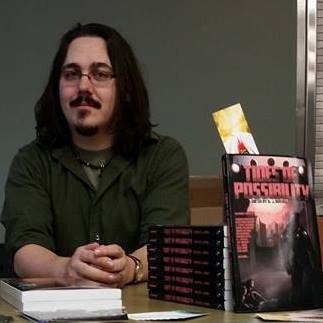 K.J. Russell Bio:
K.J. Russell Bio: K.J. Russell is a writer of dark fantasy and science fiction, and a workshop leader for the Writespace studio in downtown Houston. He frequently speaks about the writing process and perspectives on science fiction at venues as varied as comic cons and universities. He has also edited anthologies of short genre fiction on behalf of the Houston Writers Guild. His most recent book is The Dusty Man, a post-apocalyptic genre mash-up of dark sci-fi and fantasy, told with the voice of a wild west novel. Find him at kjrussell.com, on twitter @kjrussell_write, or at facebook.com/kjrussell.write.

